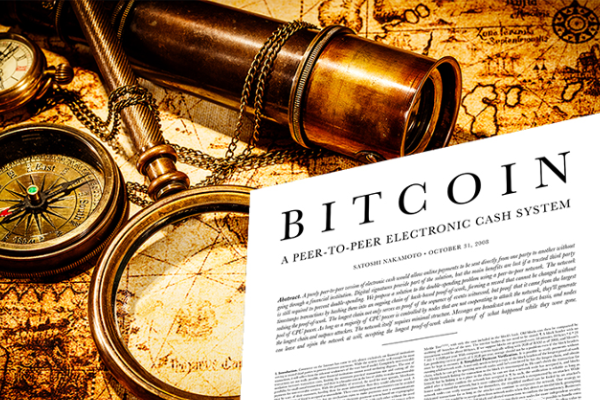How to ensure the security of cryptocurrency wallets? What suggestions are there?
With the rapid development and popularity of cryptocurrency, more and more people are beginning to pay attention to how to ensure the security of their cryptocurrency wallets. Cryptocurrency wallets are not only a tool for storing digital assets, but also an important guarantee for personal financial security. With the continuous escalation of fraud and hacker attacks in the market, it is particularly important to ensure the security of wallets. This article will analyze the security issues of cryptocurrency wallets from multiple perspectives and provide effective suggestions to help users protect their digital assets.
Basic Concepts of Cryptocurrency Wallets
Cryptocurrency wallets are tools for storing and managing digital currencies. They can be divided into two categories: hot wallets and cold wallets. Hot wallets refer to digital wallets connected to the Internet, such as mobile wallets and desktop wallets; cold wallets refer to offline storage methods, such as hardware wallets and paper wallets.
Each type of wallet has its advantages and disadvantages. Understanding these characteristics can help users choose the right wallet according to their needs and take corresponding security measures.
Security Analysis of Hot Wallets
Hot wallets are popular for their convenience, but they also face more security risks because they are connected to the Internet. The following are some common security risks and their protection suggestions:
Cyber Attacks
Hot wallets are easily targeted by cyber attacks because they are connected to the Internet. Hackers may obtain users' private keys or mnemonics through various means such as phishing attacks and malware.
Protection suggestions:
Use well-known and secure wallet applications, update the software regularly, and ensure that vulnerabilities in the application are patched.
Enable multi-factor authentication, such as two-factor authentication (2FA), to add an extra layer of security.
Avoid sensitive operations in public Wi-Fi environments and use virtual private networks (VPNs) to increase security.
Regularly check wallet addresses and transaction records to detect abnormal activities.
Malware
Malware such as viruses and spyware may steal users' private keys or mnemonics. Malware usually infects devices by downloading illegal software or clicking on unknown links.
Protection suggestions:
Install and regularly update antivirus software and perform a comprehensive system scan.
Avoid downloading software and files from unknown sources, and be cautious when clicking on links in emails.
Use security features provided by the system, such as firewalls and security updates.
Security analysis of cold wallets
Cold wallets are relatively safer due to their offline nature, but they are not completely risk-free. Here are some security issues of cold wallets and their protection suggestions:
Physical damage or loss
Hardware wallets and paper wallets may be at risk due to physical damage, loss or theft. In particular, paper wallets are easily damaged by factors such as water and fire.
Protection suggestions:
Store hardware wallets in a safe place, preferably in a fireproof and waterproof safe.
Back up the private key or mnemonic of the paper wallet and store it in multiple safe locations to prevent loss.
Avoid operating the wallet in an unsafe environment to reduce the risk of damage.
Backup and recovery
Properly backing up the cold wallet is the key to ensuring its security. Losing the backup means that the assets in the wallet may not be recovered.
Protection suggestions:
Back up the private key or mnemonic of the wallet regularly and store it in different safe locations.
Use encrypted backup methods to ensure that the backup files cannot be accessed by unauthorized personnel.
Test the backup recovery process to ensure that the backup files can be used normally.
Comprehensive security strategy
In order to maximize the security of cryptocurrency wallets, users should adopt a comprehensive security strategy. These strategies include:
Education and vigilance
Users need to continuously improve their awareness of cryptocurrency security and learn about the latest scams and attack techniques. Educate yourself and your family to avoid becoming a target of attack.
Protection tips:
Regularly read articles and news about cryptocurrency security to stay informed of the latest threats.
Take relevant online courses or seminars to learn security protection tips.
Communicate with other cryptocurrency users in the community to share security experiences and suggestions.
Multiple protection measures
Using multiple protection measures can effectively reduce security risks. For example, combining hot wallets and cold wallets can enjoy the convenience of hot wallets and the high security of cold wallets.
Protection tips:
Store most of your assets in cold wallets and only keep a small amount of funds in hot wallets for daily transactions.
Regularly review and update security measures to ensure that all protection measures are in the best condition.
Use multiple security means, such as password managers and encrypted communication tools, to enhance overall security.
Conclusion
The security of cryptocurrency wallets is an important aspect of protecting digital assets. Whether using a hot wallet or a cold wallet, it is crucial to understand its security risks and take effective protective measures. By implementing the above suggestions, users can significantly reduce the risk of being attacked and ensure the safety of personal assets. As technology continues to develop, keeping an eye on the latest security trends and constantly improving one's own security awareness will be a long-term strategy to ensure the security of cryptocurrency wallets.
Google Translate













